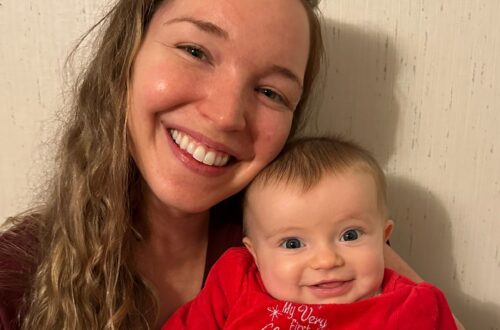
A Flourishing Community
1 Corinthians: 12 & 13: A flourishing community
In 1 Corinthians 12 and 13, we catch a glimpse of a flourishing community of integrated believers working together for the greater good. We see a community working together, embodying their unique gifts and talents to serve one another, further the church, and help restore goodness and beauty into a broken world.
Spiritual Gifts
Paul begins by speaking about our spiritual gifts, including, but not limited to wisdom, knowledge, faith, healing, the working of miracles, prophecy, discernment, and the ability to speak and interpret tongues. Although there are many gifts, there is but one Spirit who distributes these gifts. “All these [gifts] are empowered by one and the same Spirit, who apportions to each one individually as he wills” (1 Corinthians 12:11). When we are in tune with our gifts and use them to serve others, while also receiving and being strengthened by others’ unique gifts, we work together to encourage, serve, and further God’s kingdom as one “body.”
Paul then describes the proper relationship between this “body” and its members:
“For the body does not consist of one member but of many. If the foot should say, ‘Because I am not a hand, I do not belong to the body,’ that would not make it any less a part of the body. And if the ear should say, ‘Because I am not an eye, I do not belong to the body,’ that would not make it any less a part of the body. If the whole body were an eye, where would be the sense of hearing? If the whole body were an ear, where would be the sense of smell? But as it is, God arranged the members in the body, each one of them, as he chose. If all were a single member, where would the body be? As it is, there are many parts, yet one body”.
1 Corinthians 14 – 20, ESV
Interpersonal Neurobiology
This idea reflects a growing movement called interpersonal neurobiology, a concept initially defined by Dan Siegel and Allan Schore. Interpersonal neurobiology emphasizes how our brains are embodied and relational, not just a collection of different parts working in isolation from one another. We thrive when we effectively link differentiated aspects of a system (known as integration) within our own bodies and minds, and in our communities. This further reveals the need for healthy relationships and attachments with other people, as we cannot become “whole” or “fully integrated” when living in isolation from others. We literally need others in order to function well.
Here, in the pages of Scripture, we see how each member of the “body” works to live among other body parts and help coordinate the tasks of the body as a whole. Each member of the body contributes to the welfare of the common good, but it also represents what it means to truly flourish.
We cannot thrive on our own. If we are the “ear” we need the brain to interpret what we hear. We need the neck to turn our heads in the direction of the sounds themselves. We need the mouth in order to respond to what is being said or heard. Our bodies represent a beautifully interconnected system that is linked and connected to everything within itself. This is also what is needed for a community to flourish.
Shame
Our culture would tell us that we can do everything on our own. That we are smart enough, brave enough, and strong enough to power through our lives without needing any help. Shame would echo this mandate, and beat us up if we ventured to seek out help or acknowledge our vulnerability. Or, even worse, make a mistake.
While shame would push us away, encouraging us to live in places of isolation and self-sufficiency, this isn’t where we truly flourish. We are most effective, both individually and as a community, when we are interconnected and interdependent on one another. This starts in recognizing our deep need for relationships that foster connectivity, trust, and service. This begins with vulnerability and in our ability to love and be loved by others.
It is no coincidence that Paul immediately dives into this “way of love,” writing what became one of most cherished passages of Scripture:
“Love is patient and kind; love does not envy or boast; it is not arrogant or rude. It does not insist on its own way; it is not irritable or restful; it does not rejoice at wrongdoing, but rejoices with the truth. Love bears all things, believes all things, hopes all things, endures all things”
1 Corinthians 13:4-7, ESV
Communities flourish when they include members who embody their unique gifts, talents, and passions to serve others and work for the common good. They are held together by interdependent relationships sustained by vulnerability, compassion, and love.




